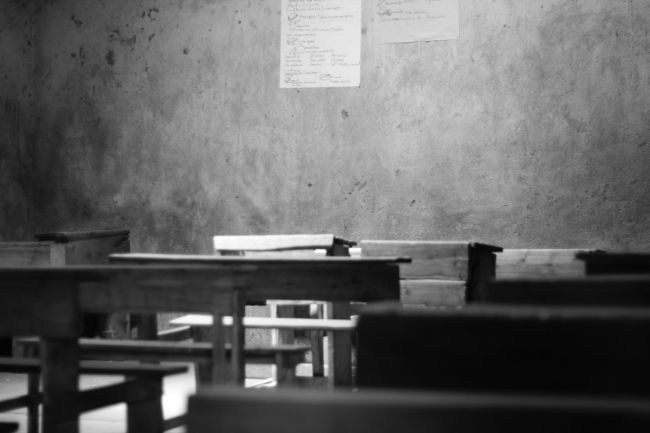South Africa: The safety of educators and students is of serious concern in the reopening of schools and colleges
As South Africa gradually reopens its economy after the COVID-19 lockdown, the government is proposing that schools should reopen on 1 June. However, the South African Democratic Teachers' Union (SADTU) is concerned about the statistics given on COVID-19.
“We are seeing more people testing positive because there is more testing being done in the communities,” said Mugwena Maluleke, SADTU General Secretary and vice-president of Education International (EI) for Africa. “We only started seeing 10,000 tests being conducted on 4 May. We will only know the results of the 10,000 people who were tested yesterday in two weeks’ time. So, there is a two-week delay before we know the real statistics.”
Preconditions to reopening
For safety reasons, SADTU has laid out several preconditions to the reopening of educational settings, such as the:
- Ability to protect vulnerable learners and vulnerable employees in basic education. Higher education institutions have decided that on-site institutions will remain closed. The exception is medical students in their final study year who will have to write their practical examination and are relying on online and distance learning for this term and for the beginning of the 2020-2021 year.
- Need to have safe transport for both education employees and students attending rural schools in large numbers.
- Daily screening of employees and learners to track their temperatures to be able to detect possible contamination by the virus. Once the virus is detected, people must be referred to the health department, and be given full attention as appropriate.
- Implementation of sanitary measures to help prevent the spread of the virus in the workplace. SADTU has indicated that there must be a deep cleansing, sanitisation, and provision of essential items before schools can be reopened.
- Provision of personal protective equipment in the form of non-surgical masks to protect learners and teachers from COVID-19 contamination.
Non-negotiable items
The teacher union has also proposed a list of non-negotiable items. “We will not go back to the schools unless those non-negotiable items have been met,” Maluleke insisted. Some of them deal with issues such as adequate and reasonable class sizes.
He also explained that the team of epidemiologists and medical experts helping SADTU said that children should not encounter elderly people, as the latter are vulnerable to COVID-19. “We have teachers who are elderly people aged over 64 years old and, therefore, we have said these are the teachers who must then remain at home. They can be given tools to do their work because they are vulnerable.”
He insisted that the education union puts health, especially teachers’ health, first.
Extra duties
SADTU also believes that additional teachers and education support personnel promised by the government are indispensable in the reopening of schools.
Additional education support personnel will be able to take care of health issues in terms of hygiene. They will also be involved in the school nutrition project, ensuring learners are fed in schools. In addition, more teachers must be appointed where they are needed to assist in the reduction of class sizes.
“When it comes to dignity issues, water, and sanitation in our schools, more than 3,400 out of the 23,000 rural schools need emergency water and sanitation,” Maluleke highlighted. “We do not believe that this will be resolved by 1 June.”
These preconditions and non-negotiable items were presented to public authorities in a media statement issued on 24 April by the SADTU Secretariat.
“We are working together to monitor that the government is able to honour all the preconditions as well as the non-negotiables,” Maluleke stressed. “We are not going to allow any student or education employee to get into a situation where there are no safety precautions, no personal protective equipment, and so forth.”
In addition, a SADTU committee is reviewing the curriculum as well as examining the school calendar for 2020-2021.
He also acknowledged that “we need to do our best to avoid widening any existing learning gaps during the remote learning period”.
Uniting as a nation to defeat the virus
SADTU “has the right to be concerned about the safety of members and communities should not feel ashamed to have these concerns,” said Maluleke. “We must express them openly so that, together, we can contain the spread of the virus. We believe that this is the time to unite as a nation and defeat the virus.
“Let us work together as a nation and support our President as he crosses this difficult and unprecedented terrain. We must not make a mistake because this virus is brutal. Only if we unite and stop competing, can we defeat this virus.”
Education International’s Guidance
Education International has also released its Guidance on reopening schools and education institutions, which can be downloaded here

[Tue, 19 May 2020 17:01:00 +0000] | DIGG THIS
Education International · No. 3 Torshie Close, · Mempeasem · East Legon Extension · Accra · Ghana
Phone: +233.302.50.12.00 · Fax: +233.302.50.66.81 · Email: eirafoffice@ei-ie.org
